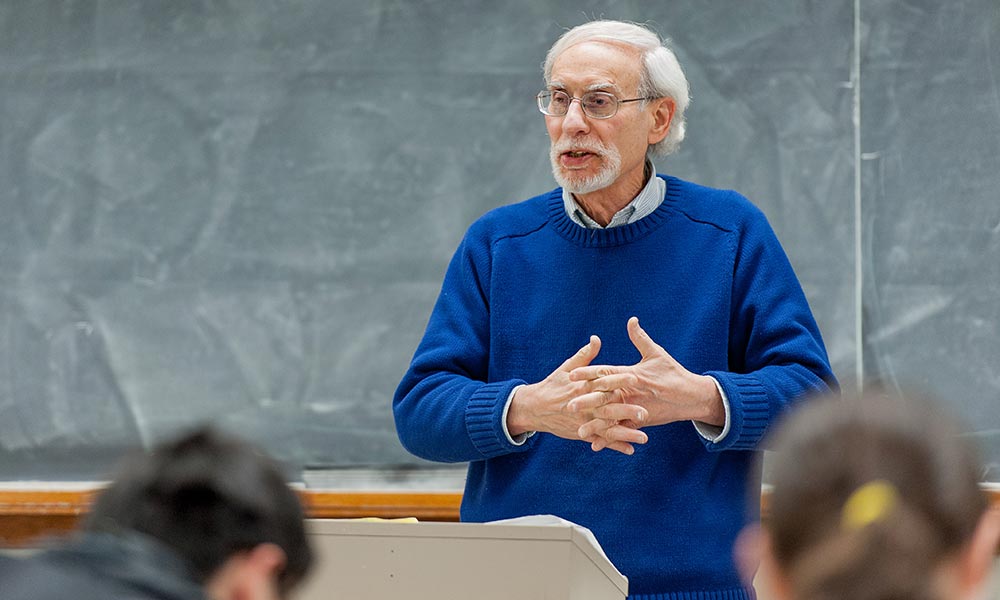The United States originally saw the World Health Organization “as an extension of its own foreign policy intentions,” Theodore Brown, a University of Rochester professor emeritus of history and public health sciences, told Claire Bowes, host of the BBC’s Witness History series.
In the News: Theodore Brown and the WHO
BBC’s Witness History: The Origin of the WHO.
Forbes:“U.S. Withdrawal from WHO Is Sad for Global Health and Bad for America”
In a BBC report this week exploring the origins, mandate, and behind-the-scenes politicking of the WHO, Brown, a coauthor of The World Health Organization: A History, said that if it took “winning the hearts and minds of the people with a malaria eradication program” to stop the rapid spread of Communism to poor and developing countries—then the US was willing to help fund that.
“Then fine we’ll do that through bilateral systems,” Brown said in explaining the thinking of the US administration at the time of the founding of the WHO in 1948.
Earlier this week, Brown spoke to Forbes about President Donald Trump’s threat to withdraw the US from the WHO, calling it “the height of folly, shortsightedness, and stupidity“ that would result in “irreparable damage to the WHO and worldwide efforts to cope with COVID-19.”
Brown added that, if the president’s “actions match his rhetoric (they don’t always), his reckless decision will also cause immense damage to the United States. Not only will the US leave WHO and its global health partners less able to cope with the COVID-19 pandemic which if left unchecked will threaten the US for years to come, but the US withdrawal will disconnect the country from vital sources of information and collective action which will add an enormous additional threat to the country’s survival.”
Brown’s research interests run the gamut from US health policy and politics, to the history of psychosomatic medicine, stress research, and biopsychosocial approaches to clinical practice. Prior to his retirement in 2018, he had been the University’s inaugural Charles E. and Dale L. Phelps Professor of Public Health and Policy, a position he held for five years.
Read more
 Theodore Brown receives Lifetime Achievement Award from American Association for the History of Medicine
Theodore Brown receives Lifetime Achievement Award from American Association for the History of MedicineHistorian Theodore Brown is the recipient of this year’s Genevieve Miller Lifetime Achievement Award from the American Association for the History of Medicine (AAHM).

Has the World Health Organization measured up?
University of Rochester historian discusses The World Health Organization: A History, a comprehensive look at the organization that and two coauthors published in 2019.



